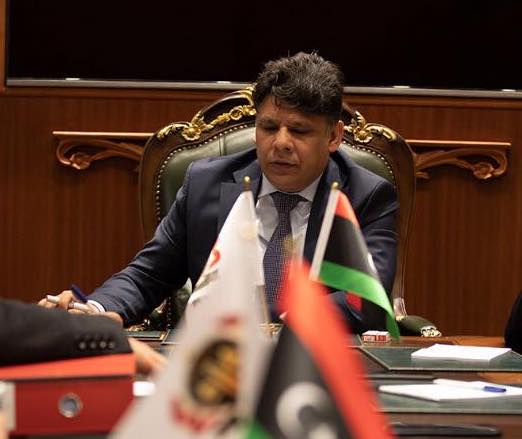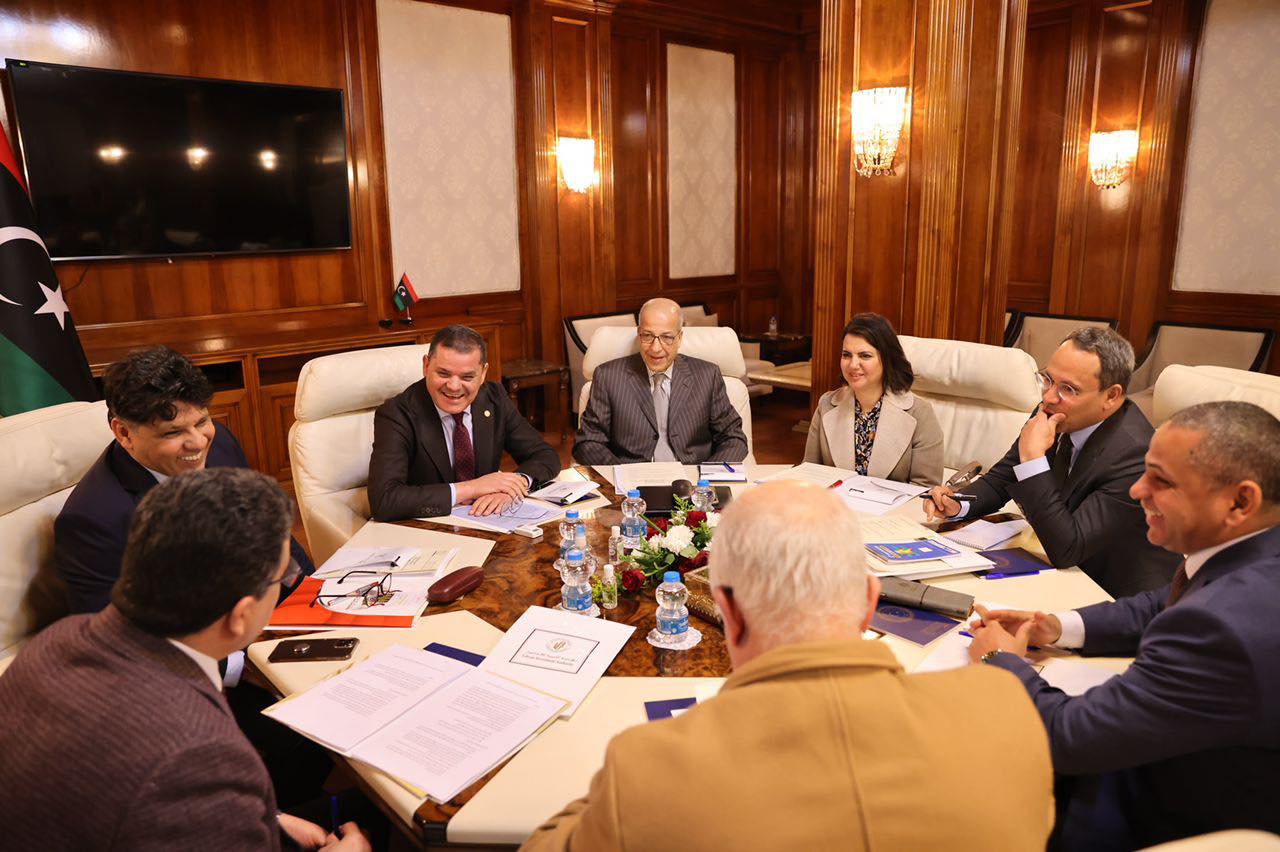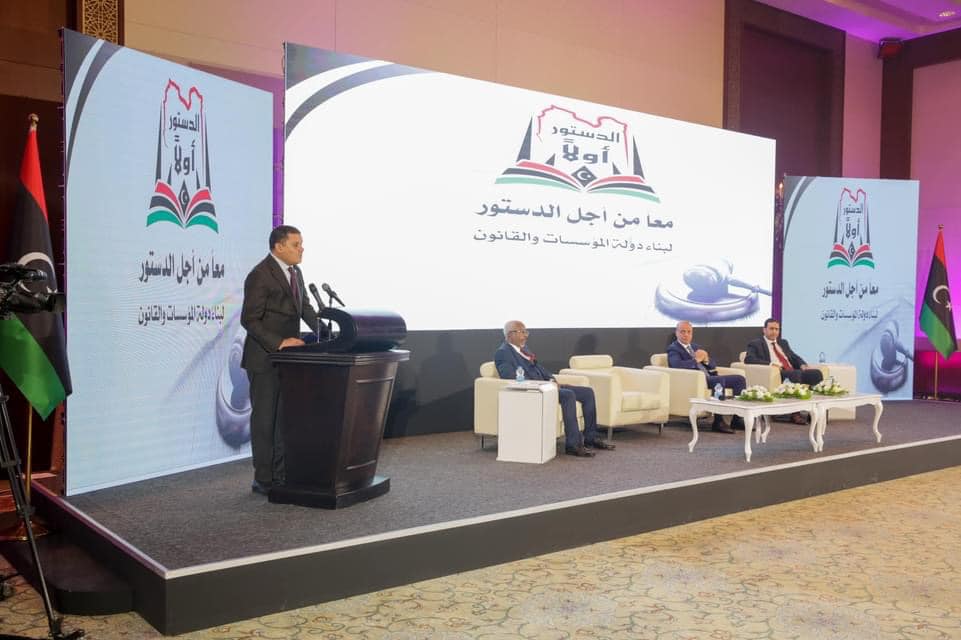By Hadi Fornaji.

Tunis, 24 January 2022:
It is reported that Libya’s Attorney General, Sideeg Al-Sour, plans to visit a number of European capitals, ending in Brussels, in an attempt to resolve the increasingly barbed and potentially dangerous row with Belgium and possibly other EU states over attempts by a company linked to Prince Laurent of Belgium, brother of King Phillipe, to seize LIA assets in the country as compensation for a failed afforestation project in Libya.
On Thursday 20 January, the public prosecutor’s office in Brussels, confirmed earlier reports that, in the latest twist in the row, an international arrest warrant had been issued by Belgium for the chairman of the Libyan Investment Authority (LIA), Ali Mahmoud Hassan.
The move stems from efforts by a Belgian non-profit company, Global Sustainable Development Trust (GSDT), run by Prince Laurent, to obtain compensation from LIA funds for an afforestation project in Libya agreed with the Qaddafi regime’s agriculture department in 2008 but then cancelled by it after it had started. Initially, €17 million was claimed but this has risen to some €50 million because of time taken, legal costs and interest. In November 2014, a Belgian court ordered Libya to pay compensation to GSDT.
Unable to secure payment, GSDT took the view that LIA funds were Libyan government funds and therefore a legitimate target when trying to obtain compensation.
It appears to be supported in this by the Belgian courts.
This, however, has been rejected by the LIA which insists that it is a separate, sovereign Libyan organisation, not controlled by the government. It also points out that it never had any contract with GSDT. It says that any claims should be addressed to the agriculture ministry.

The matter has been complicated, first, by the fact that LIA funds of around $14 billion are frozen in Belgium, as elsewhere in the world, as a result of UN sanctions approved in 2011 – they are held by Belgium’s Euroclear bank – and cannot be touched; and, secondly, by a subsequent decision taken in Belgium to release to the LIA some €2 billion in interest and other earnings from those funds in the belief that they were not part of the original sanctions order because of an EU decision to that end in late 2011. At the time, that view was backed by the UN Sanctions Committee which in 2012 – said that interest had not been frozen.
In October 2017, a Belgian judge involved in the case tried unsuccessfully to seize the frozen €15 billion held by Euroclear. That did not stop the attempts to secure compensation to CSDT out of LIA funds. Early last year, Belgium asked the UN to unfreeze sufficient LIA assets in Belgian banks to meet what was, by then, the increased compensation demanded: $49 million. In February 2021, however, the UN Security Council rejected Belgium’s request.
Blocked from going for the principal funds, GSDT efforts and those of its legal team have focused on €2-billion interest and other earnings paid to the LIA.
That release triggered a political row in Belgium when it was disclosed and the Belgian finance ministry then blocked any further release of interest payments, adding them to the sanctions regime.
The release also resulted in allegations that the freed funds had disappeared without trace and suggestions the LIA was to blame for all that had happened.
The LIA insists that it had not agreed to unfreeze any funds held by Euroclear. The UN Sanctions Committee backed this up in a letter in February 2021 to the Belgian authorities.
That has not stopped the investigating magistrate, Michel Claise, from targeting the LIA, seemingly holding it responsible for the release of the €2 billion. He also wants to know what happened to the money once it was handed over to the LIA. It is reported that he sent a long list of questions to the LIA and that, when he then did not get adequate answers, issued the arrest warrant for the chairman.
The Libyan response has been a mix of anger and puzzlement at what is seen as political intimidation by the Belgian courts.
“The LIA did not initiate the interest and dividend payments, and it does not have to explain to a Belgian judge what it did with the money after it received it. It’s its money,” said one Libyan official.
“As for allegations that the LIA funds invested in Belgium were somehow illegal, that is nonsense. They were Libyan funds, coming from Libyan oil income”.
The investigating judge is reported to have questioned Belgian financial officials over the €2 billion payments. However, despite the fact that it was Belgium that released them and despite the finding of the UN Panel of Experts in September 2018 that in doing so there had been “non-compliance” with the UN sanctions on the part of Euroclear and other Belgian banks acting as guardians for LIA investments, there has been no move to indict them or any other Belgian officials.
“The Belgians seem to be trying to make the LIA look guilty”, said a Libya expert who did not want to be named. “If anyone is guilty, the investigating judge should look closer to home.”
Libyan justice ministry undersecretary, Naziha Ashour Bin Hamed, has said that the objective of the Belgian judge is to try and pressurise Libya into handing over €47 million from its frozen funds. Not only would it not work, she said, the move was itself illegal because the LIA had not been party to the original dispute.
Support for the LIA has also come from Prime Minister Abd Alhamid Aldabaiba. He has called the Belgian action unacceptable. However, with growing concerns that the judge’s move could damage relations between Libya and Belgium (or between Libya and any other country that might find itself called on to implement the international arrest warrant), he seemingly plans to resort to the Belgian courts to resolve the issue, asking them to strike out the arrest warrant.
On 17 January, he chaired a meeting to plan a response to this and other legal attempts elsewhere to seize Libyan assets. It was attended not only by the LIA chairman but also by the Governor of the Central Bank of Libya, the Attorney General, the heads of the Audit Bureau, the Administrative Control Authority and Foreign Minister Najla Al-Mangoush.
Aldabaiba was quoted afterwards saying that such matters had to be dealt with using the law.











